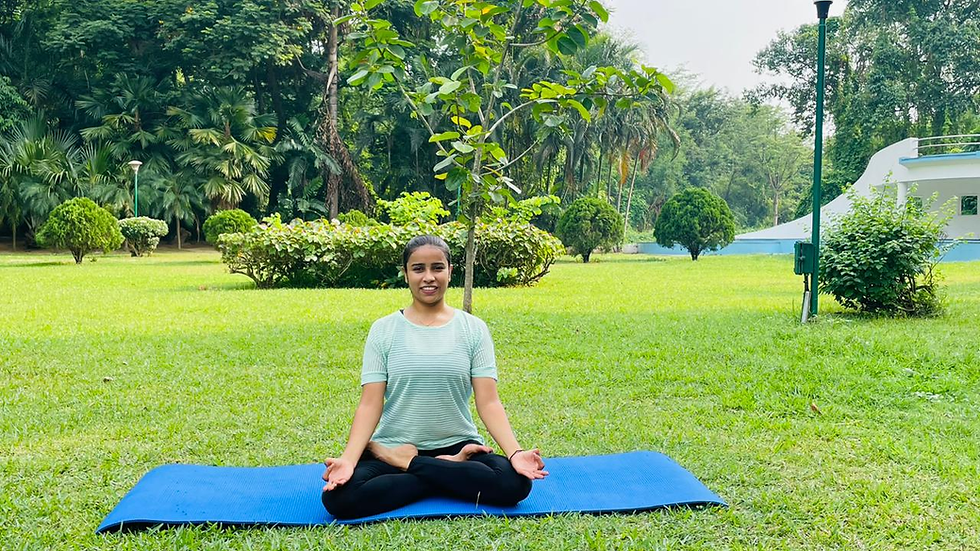How Acupuncture Helps Ease PMS Symptoms Effectively
- Amelia Leo
- Jun 28
- 4 min read
Premenstrual Syndrome (PMS) is an all-too-common reality for millions of women worldwide. From mood swings and fatigue to cramps and bloating, the symptoms can be both physically and emotionally draining. While many turn to over-the-counter medication or hormonal treatments, a growing number of women are now exploring holistic alternatives. Among these, acupuncture for PMS has emerged as a gentle yet highly effective method to relieve symptoms without side effects. But how exactly does it work, and is it right for you?
In this article, we delve deep into the science and practice of acupuncture for PMS, exploring how it helps, what the process entails, and how to care for your body post-treatment.

What Is PMS and Why Does It Happen?
Premenstrual Syndrome refers to a group of emotional, physical, and behavioral symptoms that occur one to two weeks before menstruation. Common symptoms include:
Mood swings or irritability
Breast tenderness
Food cravings
Fatigue
Cramps and lower back pain
Headaches
Bloating
Hormonal fluctuations—especially changes in estrogen and progesterone—are the main culprits. These hormonal shifts affect serotonin levels, brain chemistry, and inflammation responses, resulting in the range of symptoms women experience.
Understanding Acupuncture: An Ancient Practice for Modern Problems
Acupuncture, a core component of Traditional Chinese Medicine (TCM), involves inserting ultra-fine needles into specific points on the body to balance the flow of energy or “Qi.” According to TCM, PMS is often the result of Qi stagnation and imbalances in the liver and spleen meridians, which regulate emotions, blood flow, and digestion.
Modern scientific studies also support acupuncture's physiological effects, showing that it can:
Improve blood circulation
Reduce inflammation
Stimulate the release of endorphins (natural painkillers)
Regulate hormone production
How Acupuncture for PMS Works
When treating PMS, acupuncturists typically focus on restoring hormonal balance and easing physical symptoms. Here's how:
1. Balancing Hormones Naturally
Acupuncture helps regulate the hypothalamic-pituitary-ovarian (HPO) axis, a hormonal pathway that controls menstruation. By stimulating certain acupoints, it promotes the healthy release of estrogen and progesterone, easing both emotional and physical PMS symptoms.
2. Reducing Pain and Cramping
Acupuncture for PMS can reduce the severity of cramps by increasing blood flow to the uterus and lowering prostaglandin levels—compounds responsible for uterine contractions and pain.
3. Easing Mood Swings and Anxiety
Targeting points associated with the liver meridian helps release emotional tension. The treatment also increases serotonin and dopamine levels, improving mood stability and reducing anxiety and irritability.
4. Improving Digestion and Reducing Bloating
By enhancing digestive Qi, acupuncture can help reduce bloating, constipation, and water retention often associated with PMS.
What to Expect During a Session
Your first session will typically begin with a consultation where the practitioner asks about your cycle, symptoms, stress levels, diet, and general health. Based on your diagnosis, they’ll develop a tailored treatment plan.
During the session:
Fine, sterile needles are inserted into targeted points (such as SP6, LV3, and CV4).
The procedure is mostly painless, with sensations like tingling or warmth.
Each session lasts between 30–60 minutes.
A series of 4–8 treatments is often recommended to see optimal results.
Benefits of Acupuncture for PMS
Choosing acupuncture for PMS offers a multitude of benefits:
Drug-Free Pain Relief: No side effects like drowsiness or nausea.
Improved Emotional Well-Being: Helps regulate mood and stress levels.
Better Sleep: Acupuncture helps calm the nervous system, improving rest.
Holistic Health: Supports overall wellness, not just symptom management.
Many women report not only a reduction in PMS symptoms but also improvements in energy, skin clarity, and even menstrual regularity.
Post-Treatment Care and Lifestyle Tips
To maximize the benefits of your acupuncture sessions, consider integrating these self-care practices:
1. Hydrate Well
Drinking water post-treatment helps flush out toxins and supports circulation.
2. Rest and Relax
Your body continues to adjust after acupuncture. Allow time for rest to enhance healing.
3. Eat a Balanced Diet
Consume nutrient-rich foods—especially leafy greens, whole grains, and omega-3 fatty acids—to support hormonal health.
4. Practice Stress Reduction
Incorporate gentle yoga, meditation, or breathing exercises to calm the nervous system and reduce PMS symptoms long-term.
Scientific Backing: What Research Says
A number of clinical studies support the effectiveness of acupuncture for PMS. One notable study published in the journal Obstetrics & Gynecology found that women who received acupuncture over three menstrual cycles experienced a significant reduction in PMS symptoms, especially mood swings and pain.
Other systematic reviews have concluded that acupuncture shows promise as a complementary treatment for PMS and Premenstrual Dysphoric Disorder (PMDD), without the side effects associated with pharmaceuticals.
Is Acupuncture for PMS Right for You?
Acupuncture is generally safe and well-tolerated when performed by a licensed practitioner. It’s especially beneficial if you:
Prefer a natural treatment
Experience side effects from medications
Are seeking long-term symptom relief
Want a holistic approach to wellness
However, always consult with your healthcare provider—especially if you have a chronic medical condition or are on medication.
Final Thoughts: Embrace Balance Through Acupuncture
If you’re tired of relying on pills and are seeking a more natural, sustainable solution, acupuncture for PMS may be the answer. This time-tested therapy doesn’t just mask the symptoms—it addresses the root cause, offering both physical and emotional relief. Whether you're dealing with cramps, fatigue, or mood swings, acupuncture empowers you to regain control of your cycle and overall well-being.
Take the first step toward hormone harmony—your body will thank you.












Comments